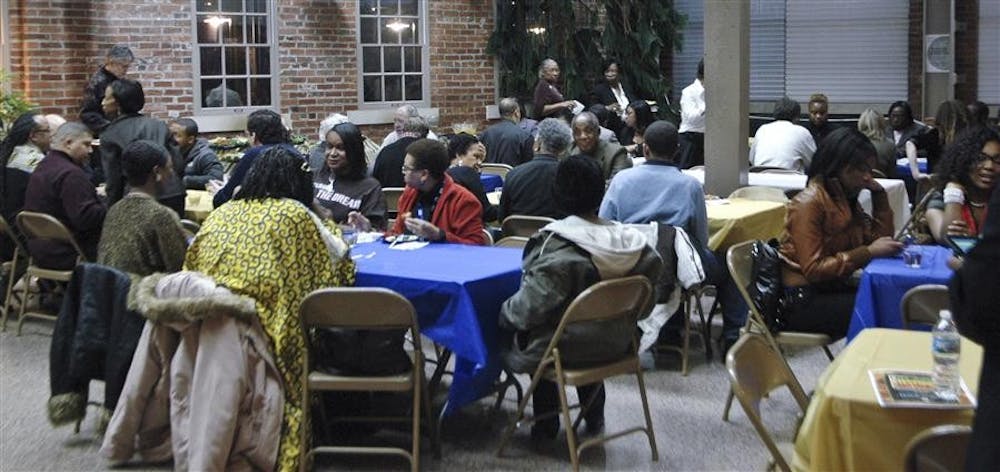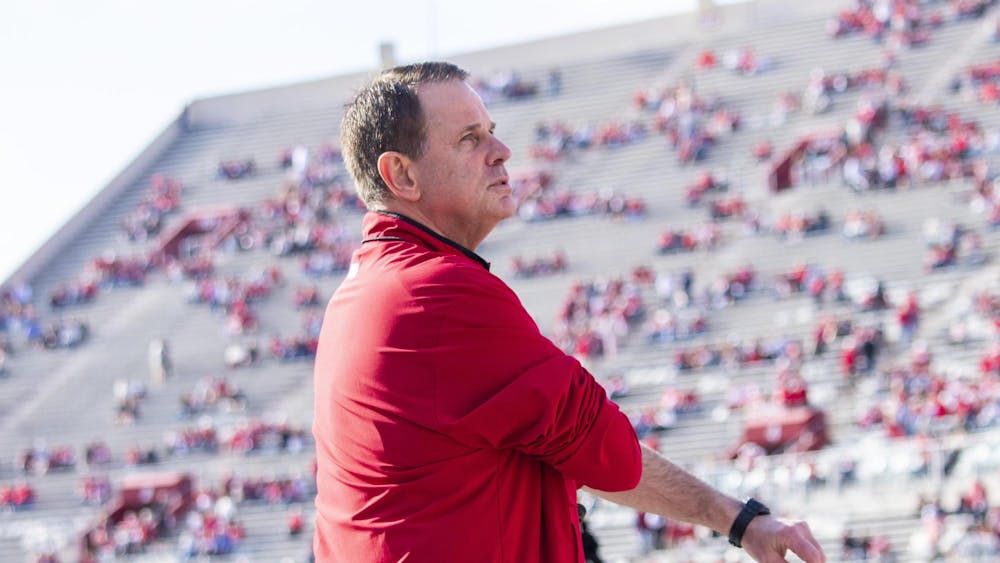A speech Thursday from Indiana’s first African-American female mayor launched Bloomington’s Black History Month celebrations, highlighting the progress African-American women have made from slave ships to the workforce.
Mayor Karen Freeman-Wilson, who gave her keynote speech in Bloomington’s City Hall Council Chambers, was inaugurated in January as the mayor of Gary. Her victory was historical because it made her the steel city’s first female mayor.
“We have come to our respective stations in life,” Freeman-Wilson said in her speech. “From the bowels of slave ships to the plantations, from the underground railroad to the lynching platform, from segregated restrooms and classrooms to a place in time where we are privileged, in some instances, to be our own worst enemy.
“As accomplished as many of us may think we are, we must always remember that our feats pale in comparison to those who have blazed a trail and on whose shoulders we stand.”
The kick off to Bloomington’s eighth annual celebration of African-American history and culture, dubbed “Black History Month — Bloomington Style: Black Women in History and Culture,” also included an introduction from Bloomington Mayor Mark Kruzan.
Freeman-Wilson highlighted several distinguished African-American women, such as Harriet Tubman, who paved the way toward equality for African-Americans. But her focus, however, was on the lesser-known women who, she said, were equally as influential.
“This ought to be a month that we simply highlight the contributions of African-Americans to history because we understand that African-American history is really U.S. history,” she said. “From Jamestown to present-day Washington D.C., and every point in between, we are there.”
Freeman-Wilson credited her success to her mother. Freeman-Wilson was a graduate of Harvard Law School, and she served as a presiding judge of the Gary City Court before serving as Indiana Attorney General.
Following her term as Indiana’s Attorney General, Freeman-Wilson became CEO of the nonprofit National Association of Drug Court Professionals and executive director of the National Drug Court Institute based in Washington, D.C.
“We celebrate the strides that we have made as African-Americans and other women of all races, but every day we are also reminded of the distance that we have left to travel,” Freeman-Wilson said. “We must continue to fuel the fight for freedom in business, education, government, in the faith community and yes, in the streets.”
Bloomington’s Safe and Civil City Director Beverly Calender-Anderson, who helped coordinate Bloomington’s Black History Month celebration, said it is important for Bloomington residents to understand the contributions of various ethnic groups in the community.
“African-American history is everybody’s history,” Calender-Anderson said. “We are all interconnected, and we all need to know our history.”
While Calender-Anderson said Bloomington is more supportive of racial diversity than other communities, she said additional progress can be made.
By providing the community with educational opportunities, such as those throughout February’s Black History Month, Calender-Anderson said she hopes to further promote tolerance.
While Freeman-Wilson’s speech marked the beginning of Bloomington’s Black History Month festivities, there are more on the way. On Tuesday, a panel discussion, titled “Why I Sing Amazing Grace: The African-American Worship Experience,” will examine the history of the African-American worship experience.
A genealogy workshop Feb. 11 will help residents learn about their ancestors.
Following these events and others, Black History Month will conclude with the Fifth Annual Black History Month Gala on Feb. 25.
“Because I am African-American, it has been very important to me to not only know my history, but to teach my son his history,” Calender-Anderson said. “I really believe that if you don’t know where you’ve come from, you’re bound to repeat the same mistakes.”
Black History Month kicks off
State’s first African-American female mayor gives kick-off event keynote

Get stories like this in your inbox
Subscribe





